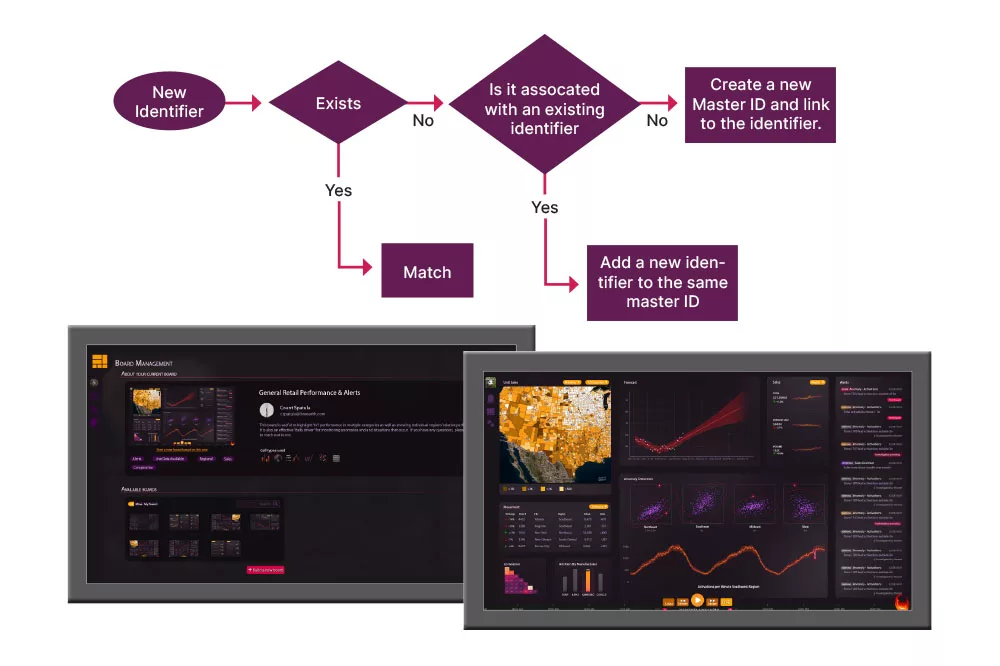In today’s digital age, companies are generating massive amounts of data every day. From customer information to sales data, this information is essential to businesses looking to make informed decisions and drive growth. However, managing and utilizing this data effectively can be a challenge, particularly when it comes to identity resolution. In this blog, we’ll explore how data platforms are changing the game when it comes to identity resolution, and how companies can leverage these tools to unlock the full potential of their data.
What is Identity Resolution?
Identity resolution is the process of connecting disparate data points to create a single, comprehensive view of an individual. This can include data from a variety of sources, including CRM systems, social media platforms, and customer service interactions. By bringing all of this data together, companies can gain a better understanding of their customers, including their preferences, behaviors, and buying habits.
Why is Identity Resolution Important?
Effective identity resolution is critical to the success of any business, particularly those that rely on customer data to inform their decisions. By creating a comprehensive view of each customer, companies can tailor their marketing efforts, improve customer service, and drive revenue growth. However, identity resolution is not always easy, particularly when data is scattered across multiple systems and platforms.
How Data Platforms are Changing the Game
Data platforms are revolutionizing the way companies approach identity resolution, providing powerful tools to help businesses bring their data together in a meaningful way. These platforms can connect data from a variety of sources, including CRM systems, social media platforms, and third-party data providers. By creating a unified view of customer data, businesses can gain insights that were previously impossible to uncover.
One of the key benefits of data platforms is their ability to handle large volumes of data. Traditional data management tools often struggle with large datasets, but data platforms are designed to handle massive amounts of information. This allows companies to gain a comprehensive view of their customers, even when dealing with large volumes of data.
Another benefit of data platforms is their ability to handle data in real-time. Traditional data management tools often struggle to keep up with the pace of modern business, but data platforms can ingest, process, and analyze data in real-time. This means that businesses can make informed decisions based on the latest data, rather than relying on outdated information.
How to Leverage Data Platforms for Identity Resolution
To take advantage of the benefits of data platforms for identity resolution, companies need to take a few key steps:
- Assess your current data infrastructure: Before you can leverage a data platform, you need to understand your current data infrastructure. This includes identifying the sources of your data, as well as any existing data management tools you may be using.
- Choose the right data platform: Once you understand your current data infrastructure, you can choose a data platform that meets your needs. Find a platform that will handle the volume and variety of data you’re working with. Additionally, one that has the features you need for effective identity resolution.
- Implement the platform: Once you’ve chosen a data platform, it’s time to implement it. This involves migrating data from existing systems, setting up data connectors, and configuring the platform to meet your specific needs.
- Use the platform to drive insights: With your data platform in place, you can begin using it to drive insights. This will involve running queries to uncover patterns and trends in your data. You will create visualizations to communicate your findings, and use the platform to inform your business decisions.
Effective identity resolution is critical to the success of any business in the digital age. By leveraging the power of data platforms, companies bring together disparate data points for a comprehensive view of their customers. To learn more about how data can help your organization, Contact Us today!

